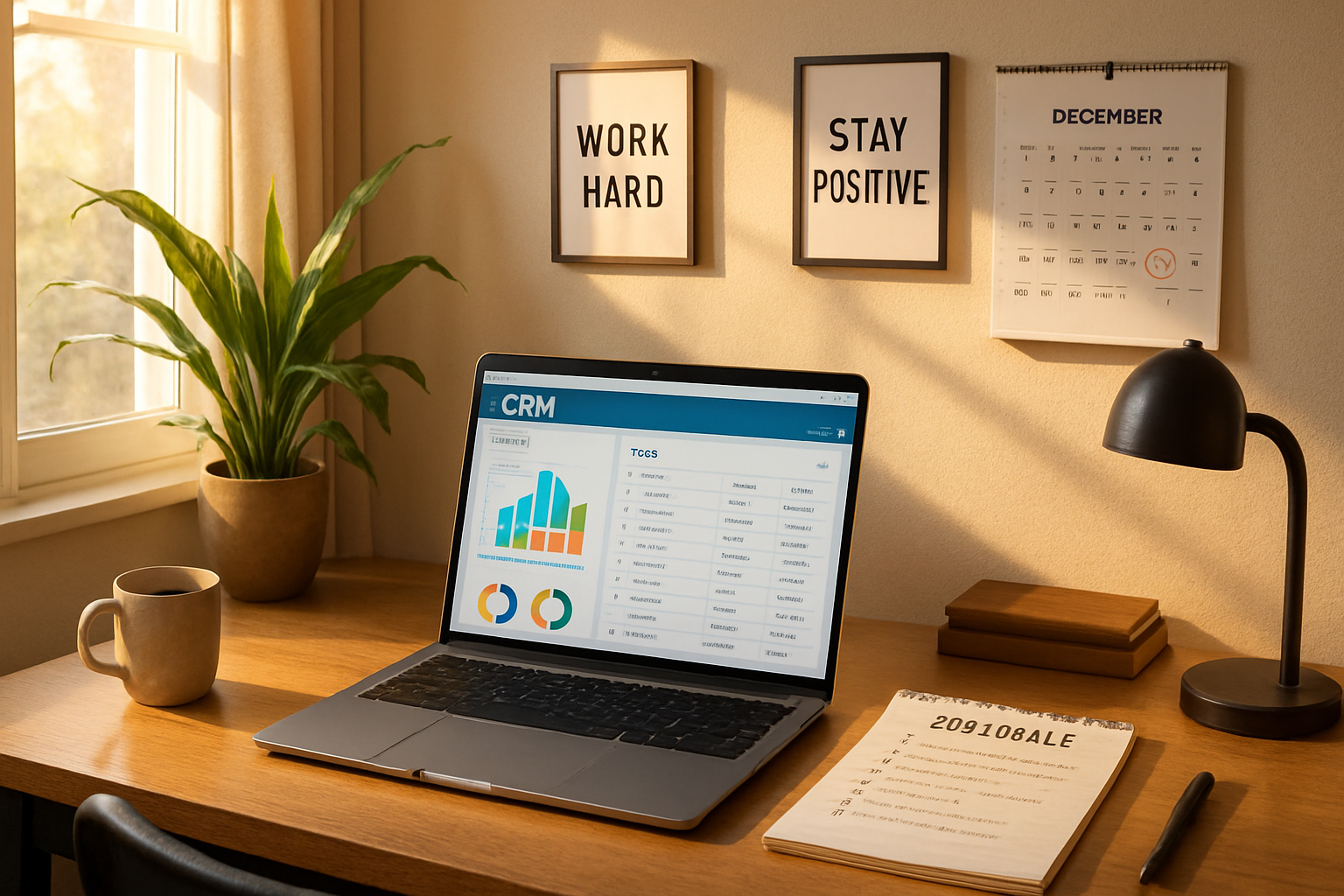Content Marketing Meets CRM: Strategies to Drive Small Business Growth
Picture this: Your content marketing efforts are bringing in leads, but they seem to disappear into a black hole. Or maybe you've got a powerful CRM,...

Managing customer relationships effectively can be a game-changer for small business owners. One tool that has proven to be invaluable in this regard is Customer Relationship Management (CRM) software. But do small business owners really need a CRM? Let's discuss, shall we?
In short, CRMs are designed to help businesses manage interactions with current and potential customers. A CRM system can streamline processes, improve customer service, and ultimately drive sales growth, and they've become a cornerstone for businesses of all sizes looking to improve client interactions and enhance sales strategies. There are many popular CRM platforms—Salesforce, HubSpot, and Zoho—and they offer a range of features tailored to different business needs.
For small businesses, understanding the fundamentals of CRM is crucial. A CRM system is not just a tool to organize contacts; it's a powerful platform for tracking interactions, managing sales pipelines, and understanding customer behavior. By leveraging a CRM, small businesses can gain insights that were once only available to larger companies with extensive market research budgets.
But what exactly entails a CRM for a small business? It goes beyond simple contact management, encompassing everything from lead tracking, customer segmentation, to sales forecasting. It can help in automating repetitive tasks, thus freeing up valuable time for small business owners to focus on strategic growth. The right CRM system can be the engine that powers customer satisfaction, loyalty, and long-term profitability.
Is now the right time to invest in a CRM system? A few questions to ask yourself:

Are you finding it challenging to keep up with lead and customer info?
Is customer data spread across emails, spreadsheets, and notes?
Are sales processes disorganized or disjointed?
Do you feel there's a lack of visibility into sales performance?
These are clear indicators that a CRM could benefit your business.
Another sign is when customer service begins to falter due to miscommunication or lack of information. If your team struggles to provide personalized experiences because they can't track customer interactions, it's time to consider a CRM. Additionally, if scaling your sales and marketing efforts seems daunting due to disorganized data, a CRM system can help align your strategies and streamline operations.
On the other hand, your small business may not need a CRM if you have a very small customer base, are working with an extremely tight budget, or if you have a straightforward sales process that doesn’t require much tracking or follow-up.
CRM tools are designed to help small businesses maximize their customer relationships. By providing a centralized platform for all customer data, these tools enable personalized communication and improved customer service. With features like sales automation, targeted marketing campaigns, and detailed analytics, small businesses can tailor their approach to meet the unique needs of each customer.
CRM tools also foster collaboration among team members by providing a shared space for tracking customer interactions and responsibilities. This ensures that everyone is on the same page and that opportunities for cross-selling or upselling are not missed. By fully utilizing CRM tools, small businesses can turn casual customers into loyal advocates, ultimately driving growth and success.
While the benefits of CRM are clear, small businesses often face obstacles in adopting these systems. One of the main challenges is the perceived high cost of CRM software. However, many affordable and even free CRM options cater specifically to small business needs. Another common hurdle is the resistance to change from staff who may be accustomed to traditional methods of managing customer information.
To overcome these obstacles, small business owners should prioritize CRM education and training. Demonstrating the tangible benefits a CRM can offer in terms of time savings and sales increases can help get the team on board. Additionally, it's essential to choose a CRM that's user-friendly and aligns with the specific needs of the business to ensure a smooth transition and high adoption rates.
Investing in a CRM system can have a significant impact on a small business's bottom line. To evaluate the return on investment (ROI), consider the time saved by automating tasks, the increase in sales due to better lead management and follow-ups, and the enhanced customer retention from improved service. A CRM can also provide valuable data insights that lead to smarter business decisions and strategic planning.
The key is to set clear objectives before implementing a CRM and to regularly assess whether these goals are being met. By monitoring metrics such as conversion rates, customer engagement levels, and overall sales growth, small businesses can quantify the benefits of their CRM investment.
With the right approach, a CRM can become an invaluable tool that not only pays for itself but also drives sustained business growth. By centralizing customer data, facilitating collaboration, and providing data-driven insights, a CRM can help you manage your business more effectively and achieve better results.

Picture this: Your content marketing efforts are bringing in leads, but they seem to disappear into a black hole. Or maybe you've got a powerful CRM,...

As a small business owner, managing your sales effectively is critical to your success. Yet, if your sales process is disorganized, it’s easy to lose...

December has a certain energy to it — the “fresh start, fresh systems, fresh me” vibe solopreneurs know all too well. You’re wrapping up projects,...